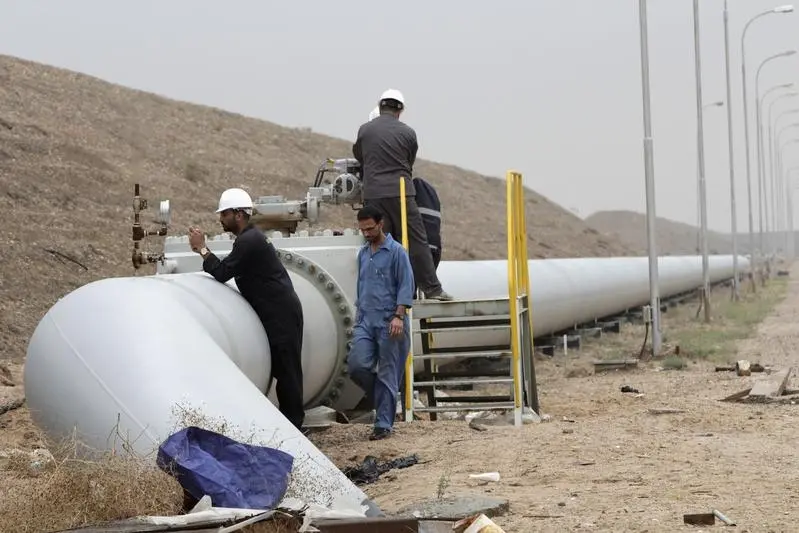PHOTO
DUBAI- Iraq is studying plans to export a new Basrah Medium crude grade to address quality concerns about its light and heavier grades but faces infrastructure constraints, oil industry sources said.
Trading sources said such a move was unlikely to happen this year as a new pipeline and other infrastructure had to be built.
"Basrah Medium is an option. But logistics-wise we are still not ready," one source familiar with Iraq's exports plans said, adding that a subsea exports pipeline and additional storage facilities were needed to cope with shipments of the new grade.
Iraq, which sells more than half of its oil to Asia, decided to split its supply into two grades in 2015 in a bid to resolve quality issues. It offered Basrah Heavy produced from southern oilfields separately from its traditional Basrah Light crude.
The shift by Iraq's state-oil marketer SOMO was widely supported by crude buyers who until then had to deal with variations in the quality of a blend of Basrah Light with heavier, high-sulphur content oil produced from newer fields.
Selling Basrah Heavy and Basrah Light separately increased buyers' confidence in quality, and cut the time ships spent waiting for different crudes to reach terminals and that had added to costs.
But the sources said Basrah Light was itself a blended grade using crude from different oilfields, which has also led to varying qualities in different cargoes.
Iraq, which relies on oil to generate most of its budget revenues, is seeking to increase crude production capacity to 7 million barrels per day (bpd) by 2022 from 5 million bpd now. But inadequate infrastructure is holding up the plans.
Iraq, the second largest producer in the Organization of the Petroleum Exporting Nations, has long planned to build a new undersea pipeline to boost export capacity but tendering and construction has repeatedly been delayed by a shortage of funds.
Exports from the south of the country, where the bulk of Iraq's reserves lie, are prone to disruption from bad weather and are pumped to two offshore terminals via old infrastructure.
Three pipelines carry oil to the Gulf terminals of Khor al-Amaya and al-Basra, but the old pipes cannot handle the higher pressure needed to boost the flow.
Iraq exported 3.426 million bpd via the south in February.
(Additional reporting by Florence Tan and Ahmed Rasheed Editing by Edmund Blair) ((rania.elgamal@thomsonreuters.com; +971 562 160 434; Reuters Messaging: rania.elgamal.reuters.com@reuters.net ; Twitter: https://twitter.com/Rania_ElGamal))





















